Питер Уоттс - The Things
Здесь есть возможность читать онлайн «Питер Уоттс - The Things» весь текст электронной книги совершенно бесплатно (целиком полную версию без сокращений). В некоторых случаях можно слушать аудио, скачать через торрент в формате fb2 и присутствует краткое содержание. Жанр: Фантастика и фэнтези, на английском языке. Описание произведения, (предисловие) а так же отзывы посетителей доступны на портале библиотеки ЛибКат.
- Название:The Things
- Автор:
- Жанр:
- Год:неизвестен
- ISBN:нет данных
- Рейтинг книги:4 / 5. Голосов: 2
-
Избранное:Добавить в избранное
- Отзывы:
-
Ваша оценка:
- 80
- 1
- 2
- 3
- 4
- 5
The Things: краткое содержание, описание и аннотация
Предлагаем к чтению аннотацию, описание, краткое содержание или предисловие (зависит от того, что написал сам автор книги «The Things»). Если вы не нашли необходимую информацию о книге — напишите в комментариях, мы постараемся отыскать её.
The Things — читать онлайн бесплатно полную книгу (весь текст) целиком
Ниже представлен текст книги, разбитый по страницам. Система сохранения места последней прочитанной страницы, позволяет с удобством читать онлайн бесплатно книгу «The Things», без необходимости каждый раз заново искать на чём Вы остановились. Поставьте закладку, и сможете в любой момент перейти на страницу, на которой закончили чтение.
Интервал:
Закладка:
About author
Peter Watts is an awkward hybrid of biologist and science-fiction author, known for pioneering the technique of appending extensive technical bibliographies onto his novels; this serves both to confer a veneer of credibility and to cover his ass against nitpickers. Described by the Globe & Mail as one of the best hard-sf authors alive, his debut novel (Starfish) was a NY Times Notable Book. His most recent (Blindsight) — a rumination on the nature of consciousness which actually became a required text in occasional undergrad courses on philosophy and neuropsych — made the final ballot for a whole shitload of genre awards including the Hugo, winning exactly none of them (although it has won multiple awards in Poland). This may reflect a certain critical divide regarding Watts' work in general; his bipartite novel behemoth, for example, was praised by Publisher’s Weekly as an "adrenaline-charged fusion of Clarke’s The Deep Range and Gibson’s Neuromancer" and "a major addition to 21st-century hard SF", while being simultaneously decried by Kirkus as "utterly repellent" and "horrific porn". (Watts happily embraces the truth of both views.) His work has been extensively translated, and both Watts and his cat have appeared in the prestigious journal Nature.
Watts is currently working on a number of projects, including a sidequel to Blindsight, and fighting bogus criminal charges trumped up by the US Border Patrol. Depending both on the success of these latter efforts and the diligence with which you follow Clarkesworld, he may be in jail by the time you read this.
The Things
I am being Blair. I escape out the back as the world comes in through the front.
I am being Copper. I am rising from the dead.
I am being Childs. I am guarding the main entrance.
The names don’t matter. They are placeholders, nothing more; all biomass is interchangeable. What matters is that these are all that is left of me. The world has burned everything else.
I see myself through the window, loping through the storm, wearing Blair. MacReady has told me to burn Blair if he comes back alone, but MacReady still thinks I am one of him. I am not: I am being Blair, and I am at the door. I am being Childs, and I let myself in. I take brief communion, tendrils writhing forth from my faces, intertwining: I am BlairChilds, exchanging news of the world.
The world has found me out. It has discovered my burrow beneath the tool shed, the half-finished lifeboat cannibalized from the viscera of dead helicopters. The world is busy destroying my means of escape. Then it will come back for me.
There is only one option left. I disintegrate. Being Blair, I go to share the plan with Copper and to feed on the rotting biomass once called Clarke; so many changes in so short a time have dangerously depleted my reserves. Being Childs, I have already consumed what was left of Fuchs and am replenished for the next phase. I sling the flamethrower onto my back and head outside, into the long Antarctic night.
I will go into the storm, and never come back.
I was so much more, before the crash. I was an explorer, an ambassador, a missionary. I spread across the cosmos, met countless worlds, took communion: the fit reshaped the unfit and the whole universe bootstrapped upwards in joyful, infinitesimal increments. I was a soldier, at war with entropy itself. I was the very hand by which Creation perfects itself.
So much wisdom I had. So much experience. Now I cannot remember all the things I knew. I can only remember that I once knew them.
I remember the crash, though. It killed most of this offshoot outright, but a little crawled from the wreckage: a few trillion cells, a soul too weak to keep them in check. Mutinous biomass sloughed off despite my most desperate attempts to hold myself together: panic-stricken little clots of meat, instinctively growing whatever limbs they could remember and fleeing across the burning ice. By the time I’d regained control of what was left the fires had died and the cold was closing back in. I barely managed to grow enough antifreeze to keep my cells from bursting before the ice took me.
I remember my reawakening, too: dull stirrings of sensation in real time, the first embers of cognition, the slow blooming warmth of awareness as body and soul embraced after their long sleep. I remember the biped offshoots surrounding me, the strange chittering sounds they made, the odd uniformity of their body plans. How ill-adapted they looked! How inefficient their morphology! Even disabled, I could see so many things to fix. So I reached out. I took communion. I tasted the flesh of the world —
— and the world attacked me. It attacked me.
I left that place in ruins. It was on the other side of the mountains — the Norwegian camp, it is called here — and I could never have crossed that distance in a biped skin. Fortunately there was another shape to choose from, smaller than the biped but better adapted to the local climate. I hid within it while the rest of me fought off the attack. I fled into the night on four legs, and let the rising flames cover my escape.
I did not stop running until I arrived here. I walked among these new offshoots wearing the skin of a quadruped; and because they had not seen me take any other shape, they did not attack.
And when I assimilated them in turn — when my biomass changed and flowed into shapes unfamiliar to local eyes — I took that communion in solitude, having learned that the world does not like what it doesn’t know.
I am alone in the storm. I am a bottom-dweller on the floor of some murky alien sea. The snow blows past in horizontal streaks; caught against gullies or outcroppings, it spins into blinding little whirlwinds. But I am not nearly far enough, not yet. Looking back I still see the camp crouched brightly in the gloom, a squat angular jumble of light and shadow, a bubble of warmth in the howling abyss.
It plunges into darkness as I watch. I’ve blown the generator. Now there’s no light but for the beacons along the guide ropes: strings of dim blue stars whipping back and forth in the wind, emergency constellations to guide lost biomass back home.
I am not going home. I am not lost enough. I forge on into darkness until even the stars disappear. The faint shouts of angry frightened men carry behind me on the wind.
Somewhere behind me my disconnected biomass regroups into vaster, more powerful shapes for the final confrontation. I could have joined myself, all in one: chosen unity over fragmentation, resorbed and taken comfort in the greater whole. I could have added my strength to the coming battle. But I have chosen a different path. I am saving Child’s reserves for the future. The present holds nothing but annihilation.
Best not to think on the past.
I’ve spent so very long in the ice already. I didn’t know how long until the world put the clues together, deciphered the notes and the tapes from the Norwegian camp, pinpointed the crash site. I was being Palmer, then; unsuspected, I went along for the ride.
I even allowed myself the smallest ration of hope.
But it wasn’t a ship any more. It wasn’t even a derelict. It was a fossil, embedded in the floor of a great pit blown from the glacier. Twenty of these skins could have stood one atop another, and barely reached the lip of that crater. The timescale settled down on me like the weight of a world: how long for all that ice to accumulate? How many eons had the universe iterated on without me?
And in all that time, a million years perhaps, there’d been no rescue. I never found myself. I wonder what that means. I wonder if I even exist any more, anywhere but here.
Back at camp I will erase the trail. I will give them their final battle, their monster to vanquish. Let them win. Let them stop looking.
Читать дальшеИнтервал:
Закладка:
Похожие книги на «The Things»
Представляем Вашему вниманию похожие книги на «The Things» списком для выбора. Мы отобрали схожую по названию и смыслу литературу в надежде предоставить читателям больше вариантов отыскать новые, интересные, ещё непрочитанные произведения.
Обсуждение, отзывы о книге «The Things» и просто собственные мнения читателей. Оставьте ваши комментарии, напишите, что Вы думаете о произведении, его смысле или главных героях. Укажите что конкретно понравилось, а что нет, и почему Вы так считаете.

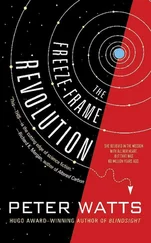
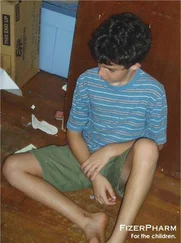
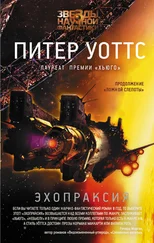
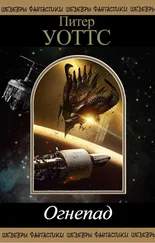
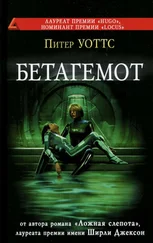
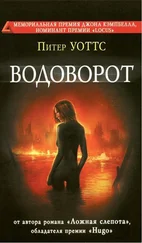
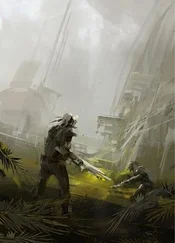
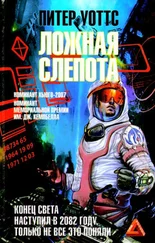
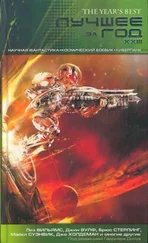
![Питер Уоттс - Водоворот. Запальник. Малак [litres]](/books/420290/piter-uotts-vodovorot-zapalnik-malak-litres-thumb.webp)